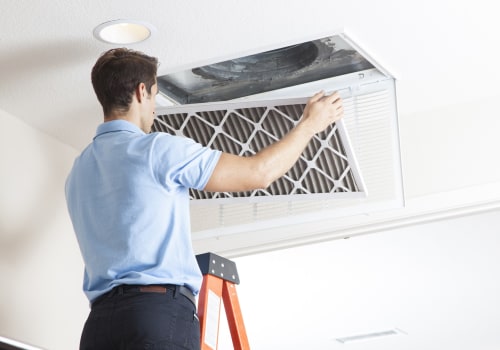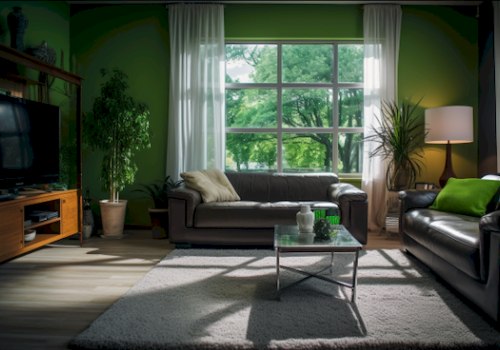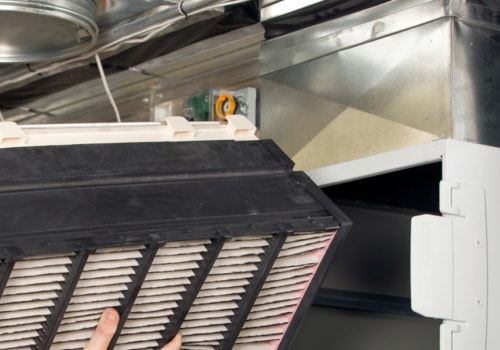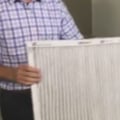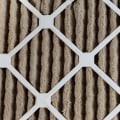Unlocking MERV Ratings and the Crucial Role of the 17x21x1 HVAC Air Filter
Your AC filter efficiency is heavily influenced by the 17x21x1 air filter, which is made to capture airborne particles to ensure the effective performance of your unit. With its large surface area and multiple layers, this filter excels in improving filtration, often leading to higher MERV ratings.
However, it's important to find a balance. High MERV ratings might restrict airflow. Your personal needs, like allergies, should also factor into your filter choice. Always consider what your HVAC system can handle.
Remember, filters, especially those with high MERV ratings, need regular maintenance.
Key Takeaways
Assisting in keeping MERV ratings high, the HVAC air filter with dimensions 17x21x1 captures airborne particles efficiently.
Its unique dimensions enhance airflow, thus positively impacting MERV scores.
The surface area along with the thickness of such filter size governs the MERV rating – generally, larger, thicker filters score higher.
Even with high MERV scores, balancing this specific filter with airflow is essential to avoid straining the system while ensuring clean air.
Periodic maintenance of this particular filter size is important, given its significant role in achieving high MERV ratings.
MERV Ratings
This is essential for assessing the performance of filtration solutions. MERV, short for Minimum Efficiency Reporting Value, quantifies air filter efficiency. This scale runs from 1 to 20, with higher numbers indicating superior efficiency. Each rating signifies the smallest particle size that can be trapped by the filter.
For trapping common pollutants such as pollen, dust mites, and textile fibers, filters rated between 6 and 8 on the MERV scale are adequate. Battling smaller pollutants like mold spores? Consider filters with ratings between 11 and 13. Microscopic allergens, including tobacco smoke, require filters rated between 14 and 16. For extremely tiny contaminants, filters with ratings between 17 and 20 are needed.
Selecting a higher rating isn’t always the best step, though. Such filters increase resistance to airflow, potentially straining your HVAC system. Balancing air filtration efficiency with system performance is therefore crucial.
The Role of 17x21x1 HVAC Air Filter
Maintaining a balance between system performance and filtration efficiency is crucial. The filter’s specific dimensions aid in ensuring optimal airflow.
Filters of this size are commonly found in residential HVAC systems, engineered to trap a significant amount of particulates. Beyond filtration, these filters also help maintain your system's efficiency. Dense filters can hinder airflow and put strain on your HVAC system, leading to decreased energy efficiency, and possibly expensive repairs.
How Filter Size Influences MERV Score
Grasping how filter size impacts MERV rating proves crucial because this knowledge affects the performance and filtration efficiency of your HVAC system. Filters of larger size generally possess a superior MERV rating owing to their expansive surface area that traps particles. Nonetheless, size isn't the only factor; the design and construction quality of the filter significantly contribute to its efficiency.
Filter thickness, or depth, can also affect MERV rating. Filters with more depth contain multiple layers for capturing airborne particles, thus raising the MERV score and enhancing filtration capabilities.
Keep in mind that a higher MERV doesn't always guarantee superiority. If your HVAC system's filter is excessively dense, airflow could be restricted, making your system work harder, and potentially reducing its lifespan. Striking a balance is essential— between high MERV for improved air quality, and optimal filter size to prevent overworking your HVAC system.
One must also bear in mind that MERV ratings aren't the solitary consideration for selecting a filter. Other factors such as the type of HVAC system you own, your specific air quality requirements, and frequency of filter change also bear significance.
Air Quality and HVAC Filters
Understanding MERV ratings and filter size is crucial, as these components significantly impact your home's air cleanliness via their function in HVAC filters. Filters boasting high MERV ratings utilize thin media fibers to ensnare tiny particles, thus purifying circulating air. For instance, filters measuring 17x21x1 provide ample surface area for capturing particles, thereby improving air cleanliness.
However, one should remember that a high MERV rating doesn't guarantee superior air cleanliness. Filters with excessive MERV ratings can hinder airflow, forcing your HVAC system to exert more effort. This increased workload results in heightened energy usage and possible system damage. Such a situation could inadvertently lower air cleanliness as the system's efficiency diminishes.
Choosing the Right HVAC Filter
Selecting the correct HVAC filter requires striking a balance between high MERV ratings and potential airflow restrictions. MERV ratings gauge a filter's capacity to capture and retain particles and pollutants. Superior MERV ratings indicate better filtration, potentially limiting airflow.
Start by determining specific requirements. For allergy sufferers, filters possessing elevated MERV ratings could be essential. However, if your HVAC system cannot accommodate reduced airflow, efficiency problems may arise.
Then, take into account the capabilities of your HVAC unit. Many home systems can accommodate filters with MERV ratings up to 12. For older or less robust systems, filters with lower MERV ratings may be more suitable to maintain good airflow.
Maintenance should also be a priority. Filters with high MERV ratings necessitate more frequent replacement due to their superior particle-trapping ability. This could result in increased costs and more regular upkeep.
Frequently Asked Questions
How Often Should I Replace My Filter?
Every 60-90 days. However, if you suffer from allergies, own pets, or reside in areas prone to dust, more frequent replacements might be necessary, perhaps every 30-45 days.
Are Higher MERV-Rated Filters More Expensive?
Certainly. This is due to their more sophisticated materials and manufacturing processes.
How Does the Air Purifier Impact Energy Efficiency?
Optimal airflow is allowed by a clean, well-fitted filter, which reduces energy usage. Conversely, more energy is consumed when your system has to work harder due to a dirty or clogged filter, resulting in decreased efficiency.
Can I Clean and Reuse My 17x21x1 HVAC Filter?
Cleaning your 17x21x1 HVAC filter for reuse isn't advisable. This disposable item is designed for one-time utilization. Any attempts to clean this filter may result in harm to its fibers, which lessens efficiency. More importantly, such actions might compromise your HVAC system's integrity.
Are There Health Risks Associated With Using a Lower MERV-Rated Filter?
Certainly, health risks can arise from using filters with lower MERV ratings. These filters lack efficiency in capturing small particulates such as dust, pollen, or mold. Consequently, this can degrade indoor air quality, potentially triggering allergic reactions or asthma attacks.
Learn more about HVAC Care from one of our HVAC solutions branches…
Filterbuy HVAC Solutions - Weston FL
2573 Mayfair Lane Weston FL 33327
(754) 296-3528
https://maps.app.goo.gl/E3tjmKf5VSWYghGc7

